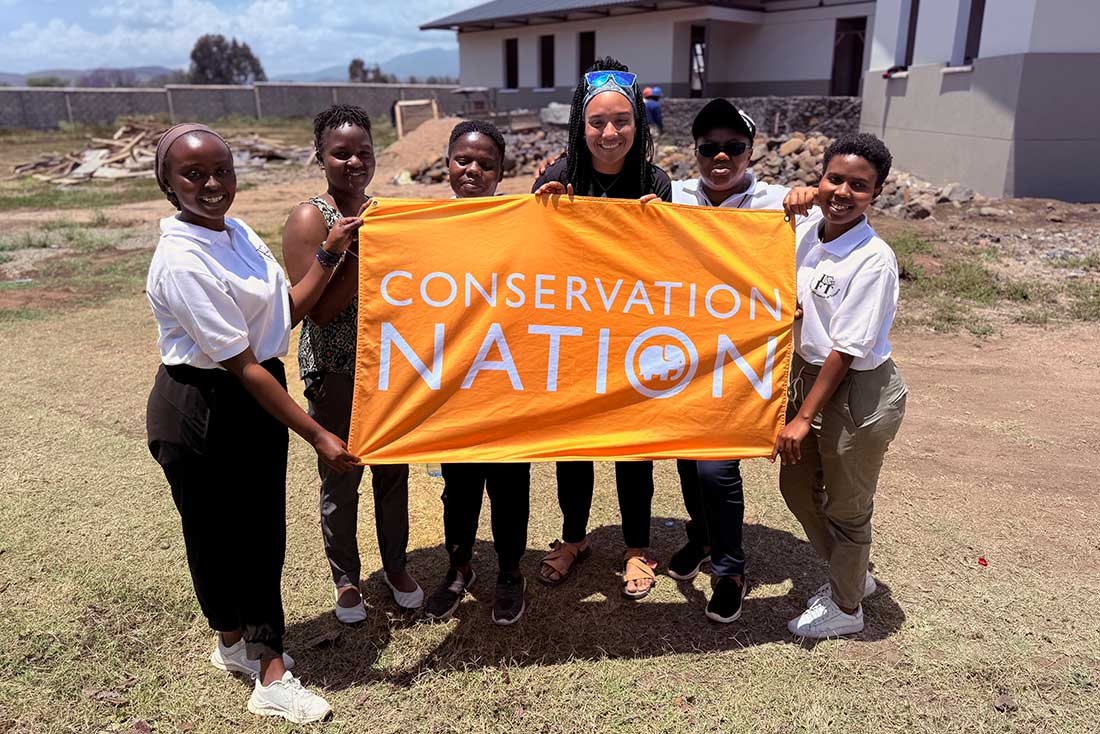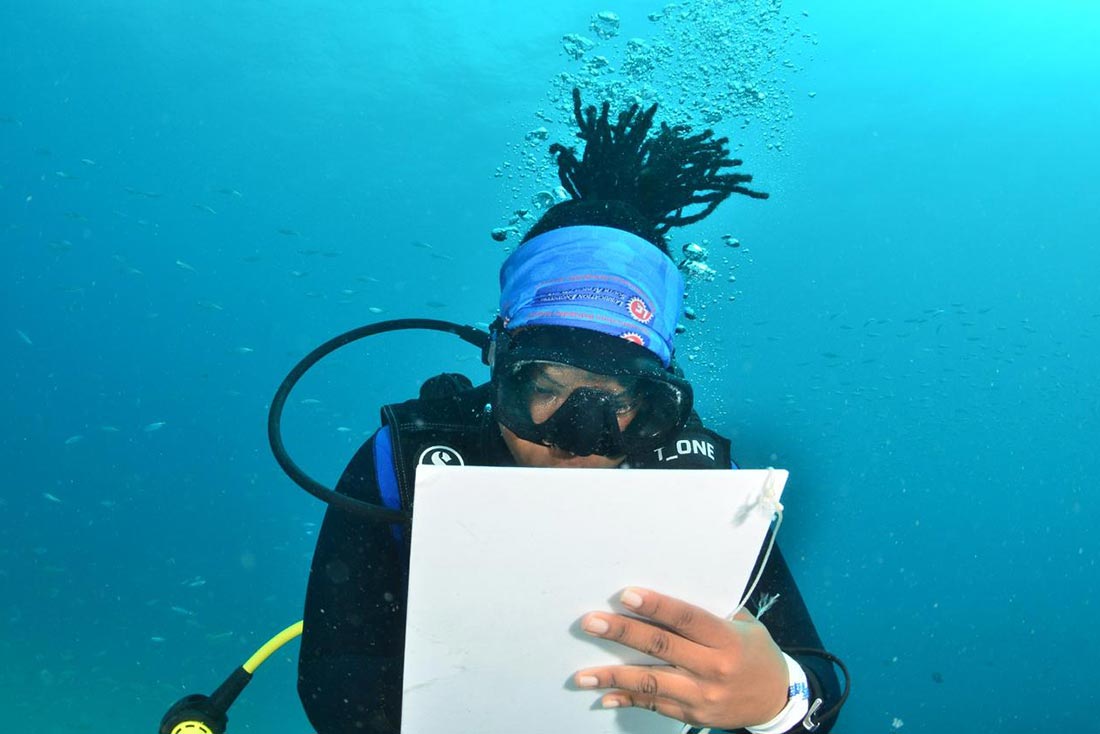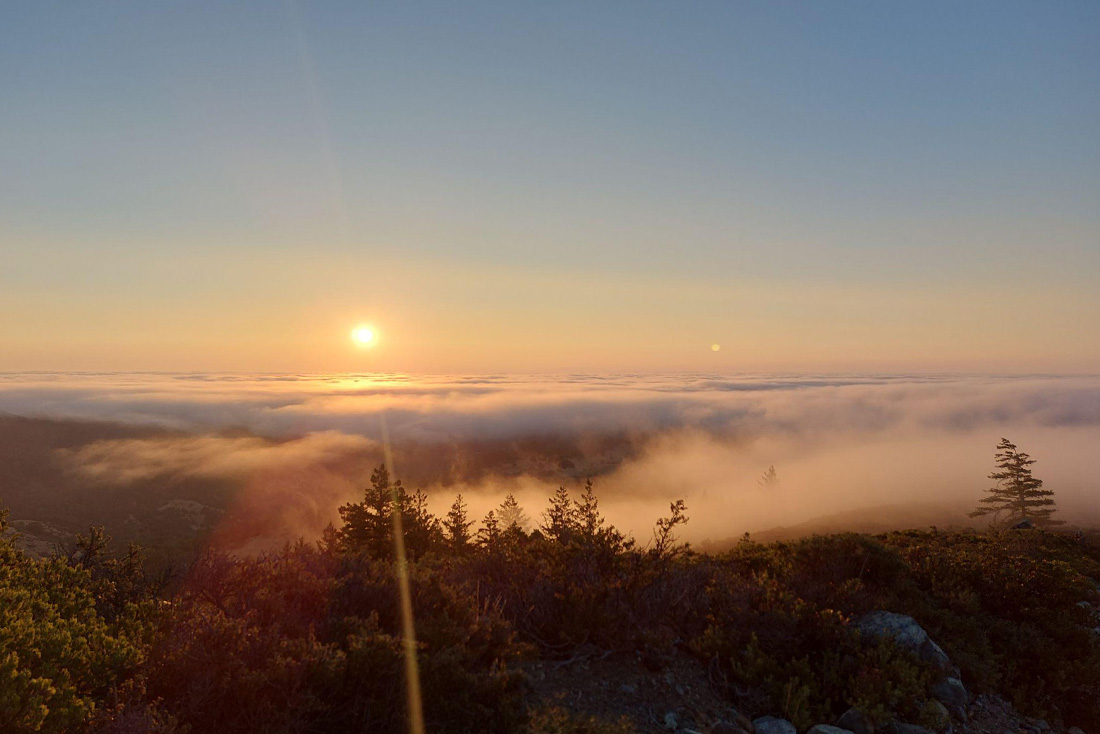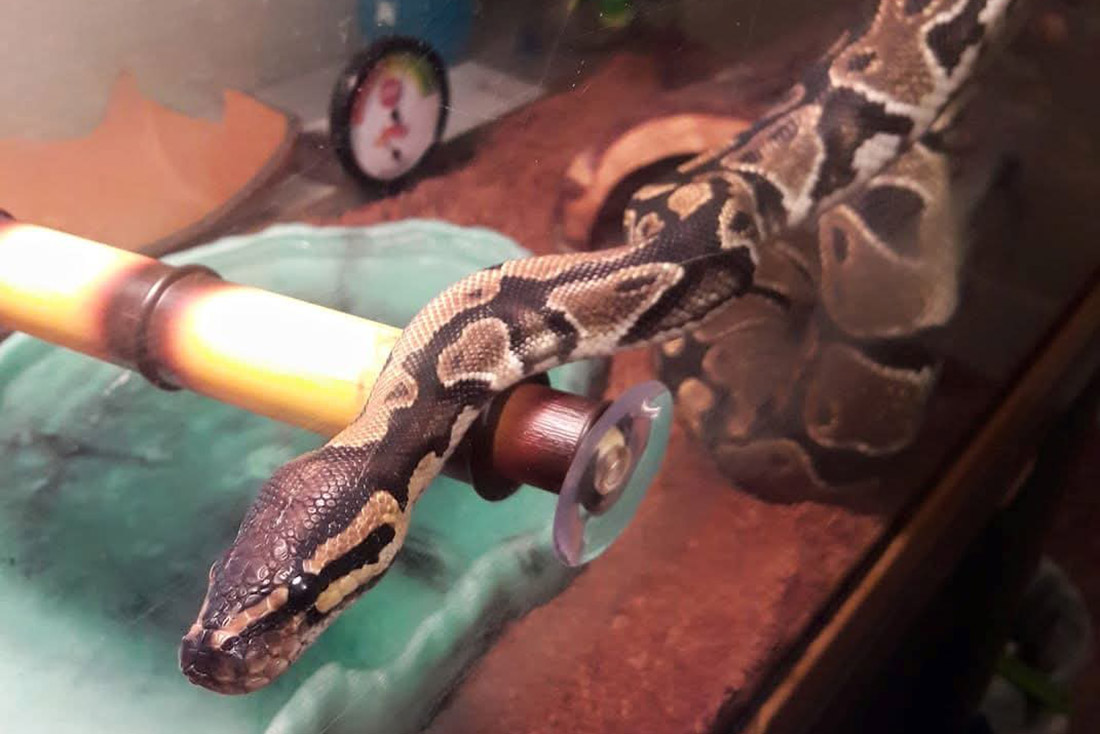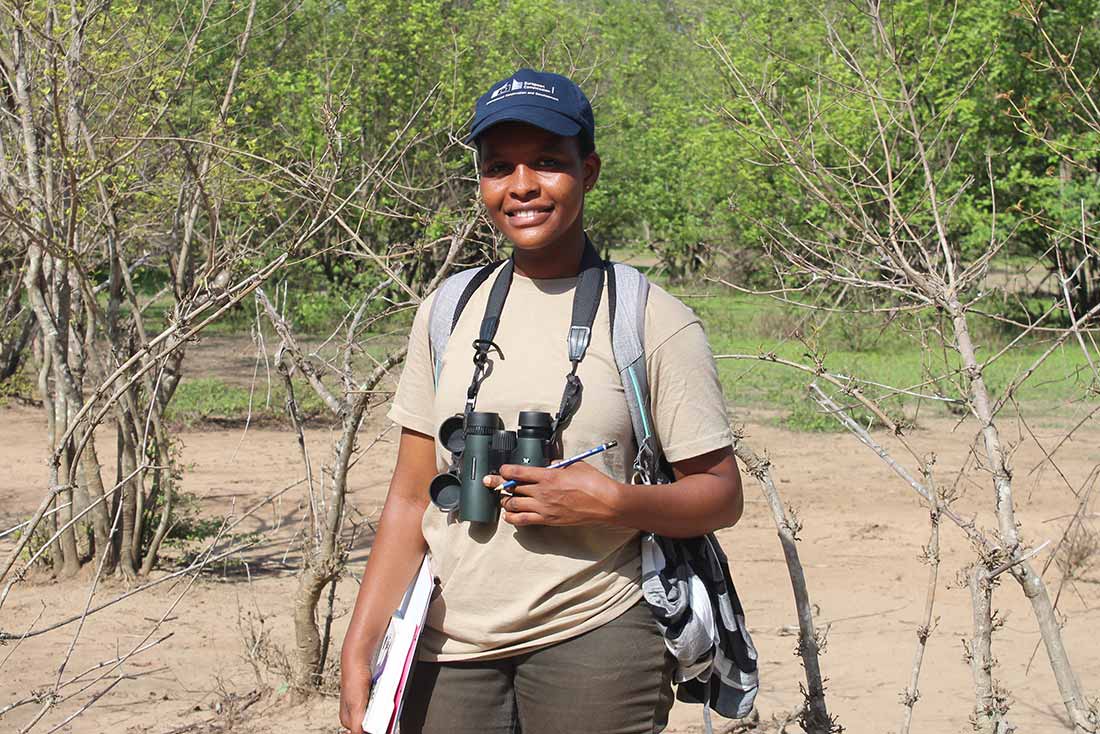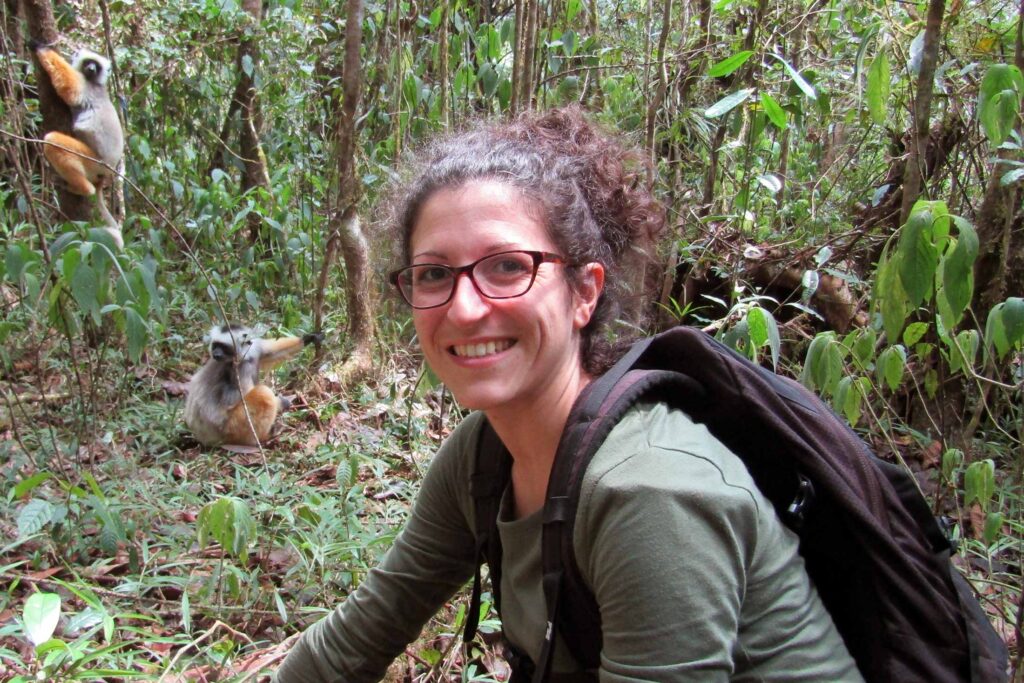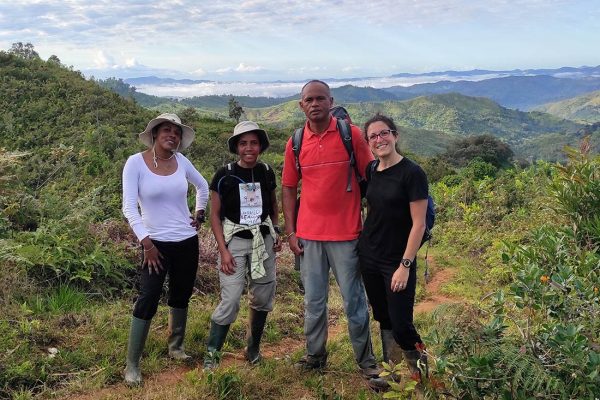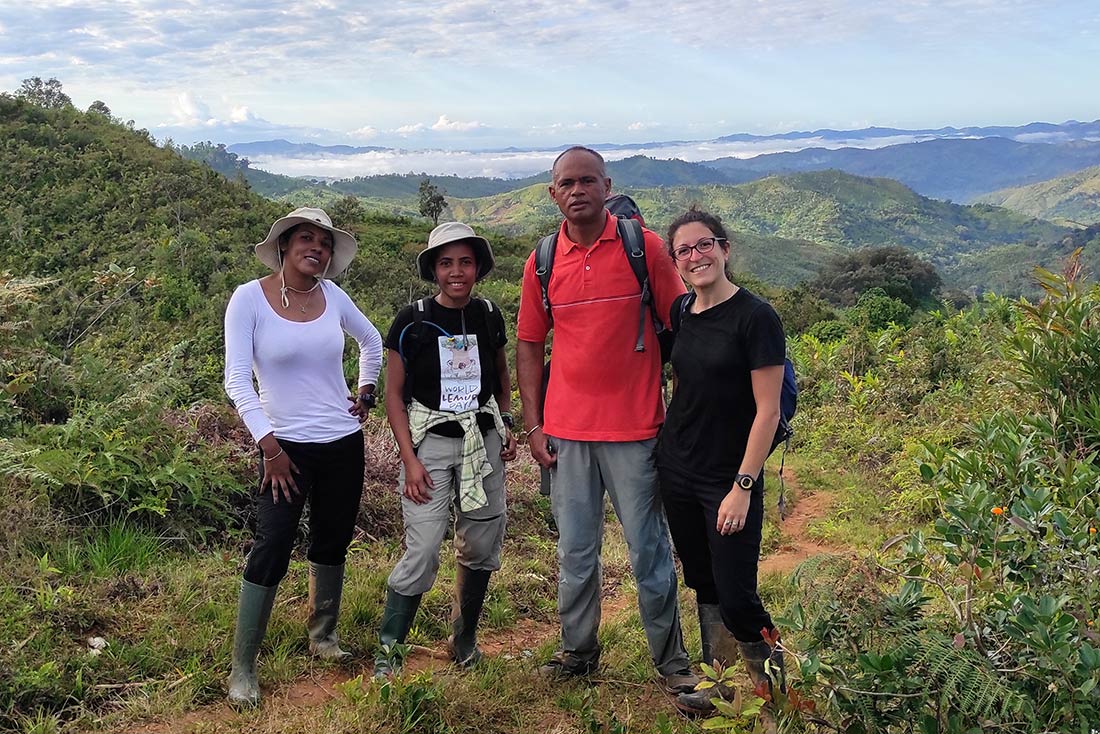Giovanna Bonadonna is one of Conservation Nation’s 2023 conservationist grant winners. Currently, Giovanna is a postdoctoral researcher at Washington University in St. Louis, where she is studying the impacts of habitat fragmentation and degradation on wild lemur populations in eastern Madagascar. Her multidisciplinary approach encompasses behavioral ecology, population genetics, and health assessments, and she works closely with local Malagasy communities and NGOs while focusing on sustainability and biodiversity conservation.
Giovanna’s academic journey began with a master’s of science in evolution of animal behavior, followed by a doctorate from the University of Turin, where she addressed questions regarding lemurs’ social and mating systems and provided data for effective conservation strategies.
Protecting the Lemur Community in Vohibe Forest, Madagascar
Giovanna’s project aims to protect 10 species of lemur in the Vohibe Forest, located in the biodiversity hotspot that is Madagascar. Nearly all lemur species are endangered, according to the IUCN, and in Madagascar deforestation is increasing while tree cover is decreasing. Giovanna’s project will work to build long-term, sustainable conservation efforts for the lemurs, while working closely with the indigenous Malagasy people.
She will accomplish this in four ways:
- Monitoring and collecting data on lemur groups by following and observing them daily, recording illnesses and injuries (including those from hunting attempts), recording how often certain lemurs interact with other lemurs, and determining human-caused improvements or destruction in the areas the animals live.
- Improving the community-based patrolling program in the forest by recruiting more members. This program began in 2008, currently has eight patrol agents doing weekly rounds, and has reduced the amount of illegal actions (like tree logging, fires, and lemur hunting) in the forest. But the program can be built upon and improved.
- Improving the lemurs’ habitat by restoring degraded areas of forest. Giovanna and her team will collect seeds of the plants that lemurs eat and grow them in existing nurseries, in addition to holding forest restoration events in the community.
- Raising awareness of this issue in surrounding communities, particularly among local women and children that have already expressed interest in nature walks and biodiversity tours of the forest.

